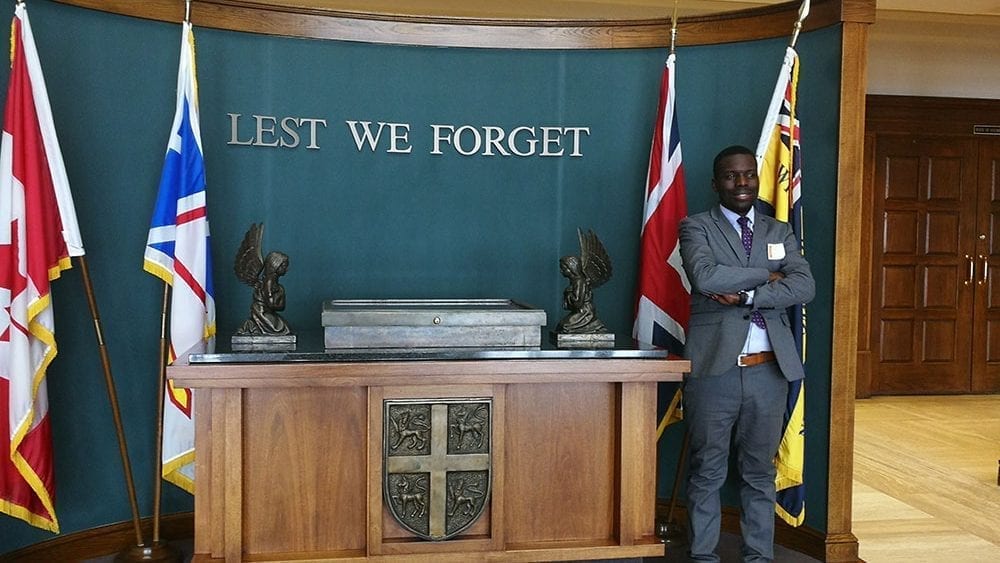As African Climate Change Week is marked in Nairobi this week, I find myself reflecting on public policy research that I am doing in Canada as an African Leader of Tomorrow scholar at Memorial University of Newfoundland. Here are some key takeaways from my work which participants could consider:
- We need more proactive parliamentary efforts in response to climate change:
- Parliaments are uniquely placed to shape a country’s policy and regulatory framework for climate change mitigation and adaptation. The spark for development of renewable energy and the provision of improved energy access and security lies in their hands.
- Parliaments must also ensure that climate change legislation is sufficiently funded and implemented, and that the citizens it represents are consulted and included in these decision-making processes.
- Parliaments must step beyond the traditional Executive prerogative in international affairs, and subject governments to the same degree of oversight as in the domestic policy arena, especially in far-reaching policy areas such as climate change.
- The distinction between foreign or international and national or domestic has become increasingly blurred. This is especially true for climate change policy which has called for global action against greenhouse gas (GHG) emissions through such international action plans or strategies as the Paris Agreement and the Kyoto Protocol.
- Increasing the parliamentary role in international climate change fora will ensure that international agreements on climate change are made credible, effective and legally enforceable by transposing them into national legislation. It will also ensure that such agreements are supported by appropriate budget allocations.
- It should be noted that parliaments are neither laying claim to a negotiating mandate, nor do they seek one. It remains the task of the Executive to negotiate in the international arena. However, parliaments must be able to scrutinise those negotiations by being kept fully informed as they unfold and by having an opportunity to express to the Executive their political views.
- There is a great need for technical assistance to parliaments, especially those in developing countries and emerging democracies, to build their capacities to enable them to perform their functions more effectively. Technical assistance can be in form of financial, material and/or expertise resources. For parliaments, this may take the form of;
- development of infrastructure;
- institutional development through improved procedures and modernisation of parliamentary processes;
- building awareness through exchanges of experience and information between members of parliament from different countries;
- capacity-building and professional development involving training for members and staff of parliament; and
- legislative development in which parliaments receive assistance with the content of new legislation or reform of existing legislation.
My knowledge/approach to public policy, particularly environmental policy, has profoundly changed as a result of my ALT scholarship. One thing I have learnt is that public policy in general, including climate change policy is not formulated, legislated and implemented on the basis of rationality and fact alone, but as a result of a complex interaction of ideas, actors and institutions. Power and politics have a pervasive influence on all public policy areas. In light of this, it is important to recognize the following dynamics relating to climate change issues:
- Climate change mitigation and adaptation outcomes are profoundly shaped by struggles for authority and recognition.
- There is need to reframe ‘adaptation’ to capture how power and politics shape adaptation needs and priorities.
- Actors compete to control resources and bolster their authority in climate change adaptation programmes while citizens seek recognition of their needs and entitlements from the government in programmes.
In all of these complex systems one thing is clear: Parliaments are an essential tool to bridge many of these gaps and ensure we’re moving in the right direction, together.
Sylvester Kaonga is an African Leaders of Tomorrow scholar from Zambia pursuing a Master of Arts in Environmental Policy at Memorial University of Newfoundland, Grenfell Campus. The views expressed in this post are those of the author.
The ALT Scholarship Program is funded by the Government of Canada through Global Affairs Canada and by the Mastercard Foundation. It is managed by CBIE in partnership with the Institute of Public Administration of Canada and in collaboration with the African Association of Public Administration and Management and the Canadian Association of Programs in Public Administration.



Comments are closed.